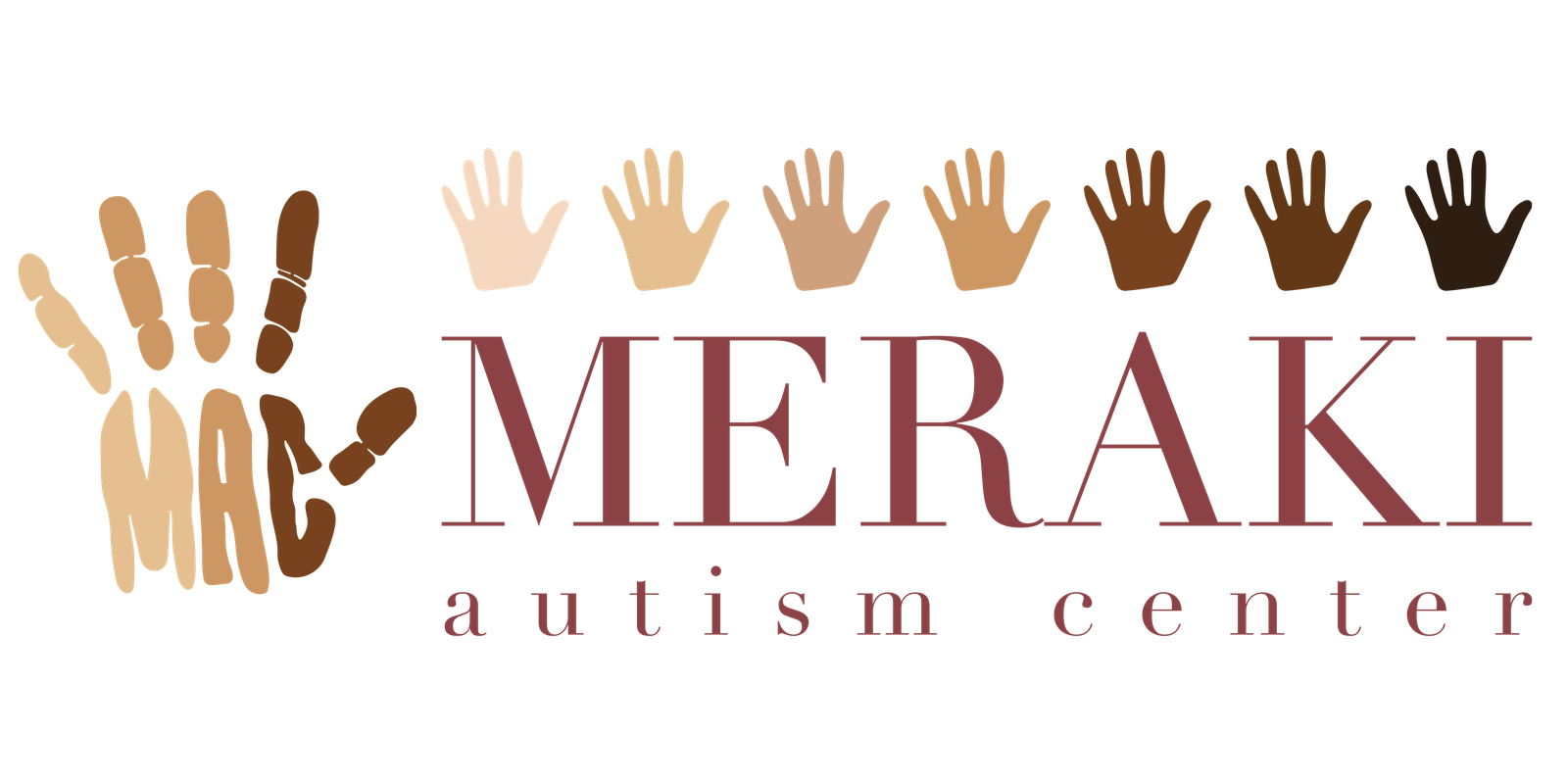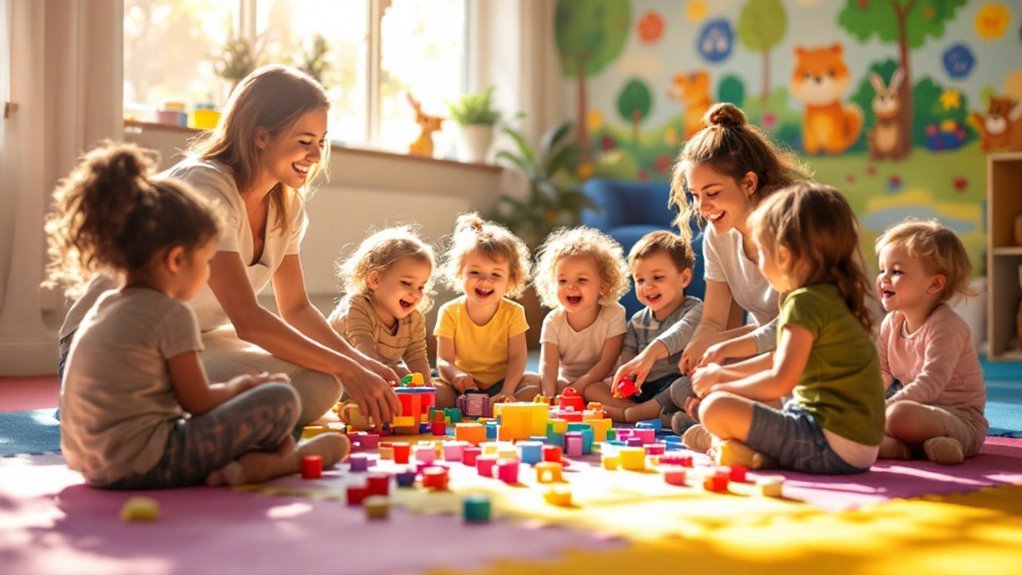ABA therapy in Northville, MI, works wonders for promoting social skills in children. By breaking down skills into easy steps, you can see your child gain confidence in social situations. Techniques like natural environment teaching help kids practice these skills in familiar settings, like parks or schools. Plus, positive reinforcement encourages them to try new interactions. Families often share heartwarming success stories, like kids initiating conversations and making friends. This localized focus not only boosts your child's ability to connect but also strengthens your ties to the community. Explore further to discover even more ways this therapy can benefit your child!
Key Takeaways
- ABA therapy in Northville focuses on individualized approaches, enhancing social skills through tailored programs for each child's unique needs.
- Therapy sessions conducted in familiar settings promote comfort and natural social interactions, fostering confidence in children.
- Techniques like modeling and social stories help children understand and navigate social cues effectively.
- Positive reinforcement encourages children to engage in new social behaviors, reinforcing progress in real-life situations.
- Local resources and community support empower families to continue developing social skills beyond therapy sessions.
Understanding ABA Therapy

Understanding ABA therapy can feel overwhelming at first, but you're not alone in this journey. Applied Behavior Analysis (ABA) is a scientifically-backed approach that focuses on improving specific behaviors through structured techniques. It's all about understanding how behaviors are learned and reinforced. Think of it as a roadmap guiding your child toward positive changes.
In ABA therapy, you'll see a lot of emphasis on breaking down skills into manageable steps. This is where the magic happens! By using positive reinforcement, your child can learn new behaviors in a supportive environment. You'll be amazed at how small changes can lead to significant improvements over time. It's not just about correcting behaviors; it's about helping your child thrive.
You might also find that ABA therapy is highly individualized. Each program is tailored to your child's unique needs, making it a personal experience for both of you.
As you commence on this journey, remember it's perfectly normal to have questions and concerns. Reach out, connect, and share your experiences. This community is here for you, ready to support you and your child every step of the way.
Importance of Social Skills
Social skills play an essential role in your child's overall development and happiness. These skills help children connect with others, build friendships, and navigate social situations with confidence.
When your child learns to communicate effectively, they're not just following the rules of interaction; they're also expressing their thoughts and feelings, which is vital for fostering meaningful relationships.
Imagine your child at a birthday party, joining in games and chatting with peers. Those moments of laughter and connection stem from their ability to engage socially.
Without strong social skills, your child might feel isolated or misunderstood, which can lead to frustration and anxiety.
Encouraging social skills isn't just about preparing for the next playdate. It's about equipping your child with the tools they need to thrive in various environments, from school to family gatherings.
You want them to feel included, valued, and understood.
Localized Approach in Northville

In Northville, parents are discovering the power of a localized approach to ABA therapy that focuses not just on individualized learning but also on enhancing social skills in familiar settings. This method allows your child to engage with peers in their own community, making those interactions feel more comfortable and natural.
When therapy happens in local parks, schools, or even at home, your child can practice social skills in environments where they feel safe and secure. You'll notice how these familiar places can spark genuine connections with others, allowing your child to build relationships that matter.
By integrating social skills practice into everyday life, you help your child feel more confident and capable. You're not just observing; you're part of the journey, contributing to their growth and understanding of social dynamics.
This localized approach not only benefits your child but also strengthens your family's ties to the community. You'll find support among other parents and resources tailored specifically for Northville families, creating a sense of belonging that enriches everyone's experience.
Embracing this approach means you're giving your child the tools they need to thrive socially and emotionally.
Techniques Used in ABA Therapy
When you immerse yourself in ABA therapy, you'll encounter a variety of techniques designed to enhance your child's learning and social skills. One popular method is discrete trial training, which breaks down tasks into small, manageable steps. This makes it easier for your child to grasp complex concepts and build confidence.
Another technique is natural environment teaching, where skills are taught in everyday situations. This helps your child generalize their learning, making it more relevant and practical for real-life interactions.
Modeling is also key—demonstrating appropriate social behaviors gives your child a clear example to follow. Reinforcement plays a huge role, too; rewarding your child for positive behaviors encourages them to keep practicing those skills.
Social stories are often utilized to explain social situations in a relatable way, helping your child navigate social cues and expectations.
All these techniques create a supportive environment where your child can flourish. By focusing on their unique needs and strengths, ABA therapy becomes a powerful tool in developing social skills, fostering a sense of belonging in their community.
Success Stories From Northville

Many families in Northville have seen incredible progress as a result of ABA therapy, showcasing the potential of these techniques in real-world scenarios.
Take the Johnson family, for instance. Their son, Ethan, struggled with social interactions and often felt isolated. After starting ABA therapy, they noticed a remarkable change. Ethan began initiating conversations with peers, joining in group activities, and even making new friends at school.
Then there's the Martinez family, who share a similar story. Their daughter, Mia, used to shy away from playdates, feeling overwhelmed. With tailored ABA strategies, she learned to express her feelings better and engage with other kids.
Now, Mia looks forward to playdates, and her laughter fills the house!
These stories are just a glimpse of what's possible. You're not alone in this journey; many families in Northville are experiencing the same hope and joy.
As you navigate your child's growth, remember that progress is a shared experience. You can celebrate every small victory together, and those moments can make all the difference in building lasting connections for your child.
Resources for Parents and Families
Finding the right resources can make a world of difference for families steering the journey of ABA therapy. You're not alone in this! There are numerous local and online resources to help you navigate through the process.
Start by connecting with local support groups in Northville. These groups not only offer advice but also create a sense of community where you can share experiences and find support from families facing similar challenges.
Don't forget to explore organizations like the Autism Society of Michigan. They provide valuable information on ABA therapy, workshops, and events where you can meet other parents and professionals.
Websites like Understood.org also offer a wealth of resources, including articles and forums tailored to your needs.
Collaborating with your child's therapists can provide additional insights. They often have recommendations for books, apps, or tools that can enhance your child's social skills at home.
Frequently Asked Questions
How Can I Find a Qualified ABA Therapist in Northville?
Finding a qualified ABA therapist in Northville's easier than you think! Start by asking for recommendations from your pediatrician or local support groups. You'll feel more confident connecting with someone who understands your child's needs.
What Age Groups Benefit Most From ABA Therapy in Social Skills?
ABA therapy benefits children of all ages, but younger kids, particularly those between 2 to 7 years, often see the most significant improvements in social skills. It's never too early to start fostering connections!
Are There Specific Programs for Children With Autism in Northville?
Yes, there are specific programs for children with autism in Northville! You'll find a variety of options tailored to different needs, helping your child develop social skills and connect with peers in a supportive environment.
How Long Does ABA Therapy Typically Last for Social Skills Development?
ABA therapy for social skills usually lasts several months to a few years, depending on your child's needs. You'll see progress as they learn and practice new skills, helping them connect better with others.
What Should I Expect During My Child's First ABA Therapy Session?
During your child's first ABA therapy session, you'll meet the therapist, discuss goals, and observe initial activities. It's all about creating a comfortable space, so your child feels safe and ready to learn.
Conclusion
To sum up, ABA therapy is a powerful tool for helping children in Northville develop essential social skills. By focusing on personalized techniques and local resources, you can support your child's growth in meaningful ways. Remember, every step forward is a reason to celebrate! If you're seeking guidance or want to connect with others on this journey, don't hesitate to reach out to local support networks. Together, we can nurture your child's social development and confidence.









0 Comments